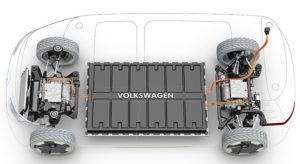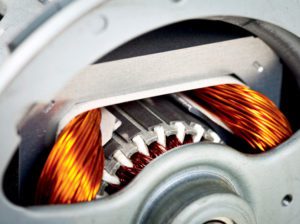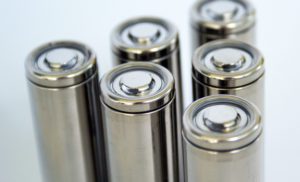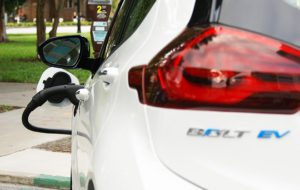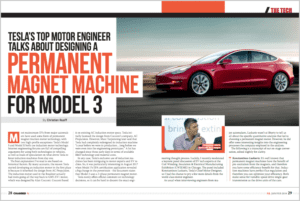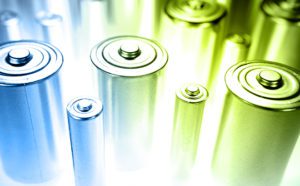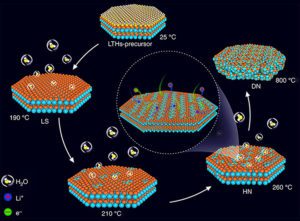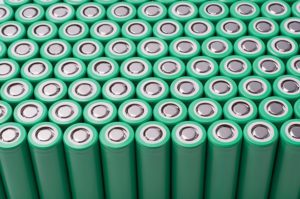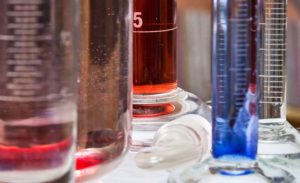Volkswagen is investing $10 million in Colorado-based startup Forge Nano, which is researching a material coating technology that could improve the performance of battery materials. Volkswagen will provide support for industrial trials of this technology. Forge Nano is headquartered in Louisville, Colorado, and is researching processes for scaling atomic layer deposition (ALD) to create new… Read more »
Search Results Found For: "ARGONNE"
DOE invents high-efficiency magnet for EV and hybrid motors
The DOE’s Argonne National Laboratory has invented a new magnet technology, called HyMag, which could lead to greater efficiency and lighter weight in EV and hybrid motors. HyMag increases a permanent magnet’s usable magnetic flux density, a property of permanent magnets that can be harnessed for power generation. “The higher the flux density you use… Read more »
Research shows NMC cathode voltage fade is reversible
New research from the University of California San Diego has found one of the causes of voltage fade in lithium-rich layered oxides (LRLO). LRLO is a promising candidate as a cathode material as it can provide 50% more capacity than current alternatives. However, voltage fade reduces the energy capacity of this material over time. UC… Read more »
New software tool helps car buyers compare EVs with legacy vehicles
Consumers in seven Midwestern states seeking information about plug-in vehicles now have access to a new-vehicle purchase guidance tool created by Argonne National Laboratory. The consumer tool, called EVolution: Choices for a Smarter Purchase, is designed to help car buyers make informed decisions when purchasing a new vehicle. It starts with consumers’ purchase considerations, including… Read more »
Tesla’s top motor engineer talks about designing a permanent magnet machine for Model 3
Most mainstream EVs from major automakers have used some form of permanent magnet traction motor technology, with two high-profile exceptions: Tesla’s Model S and Model X both use induction motor technology. Internet engineering forums are full of compelling arguments for using both technologies in vehicles, as well as loads of speculation on what drove Tesla… Read more »
New EV battery recycling model quantifies cost and energy savings
What’s going to happen to all those lithium-ion batteries after they die? What’s the best way to recycle them? A new model developed at the DOE’s Argonne National Laboratory allows industry insiders to assess the money and energy savings from recycling EV batteries. ReCell, a closed-loop battery recycling model, offers preliminary estimates of total costs… Read more »
Aqueous anode enables super-fast charging
An international team of scientists, including researchers from the DOE’s Argonne National Laboratory, has discovered an anode material that enables super-fast charging and offers stable operation over many thousands of cycles. In a recent article in Nature Communications, Argonne Battery Scientist Jun Lu and colleagues describe a water-bearing compound, lithium titanate hydrate, that could replace… Read more »
DOE researchers announce major advance toward a solid-state magnesium battery
DOE scientists at the Joint Center for Energy Storage Research (JCESR) have discovered a new magnesium-ion solid-state conductor, a major step towards making solid-state magnesium-ion batteries that are both energy-dense and safe. The liquid electrolyte used in current lithium-ion batteries makes them potentially flammable. Researchers around the world are working to develop a practical solid-state… Read more »
alpha-En wins grant to commercialize lithium metal anodes
New York-based alpha-En has won an award of $750,000 from the DOE’s Office of Technology Transition Technology Commercialization Fund. The funding will be used to commercialize Argonne National Laboratory’s proprietary highly conductive solid-state electrolyte coating for alpha-En’s lithium metal anodes. alpha-En says its lithium metal is purer than what is currently available on the market,… Read more »
New fluorinated sulfone electrolytes enable high-voltage, high-energy Li-ion batteries
Researchers at Argonne National Laboratory have synthesized a new class of fluorinated sulfone electrolytes to enable high-voltage, high-energy Li-ion batteries. In “Oxidatively Stable Fluorinated Sulfone Electrolytes for 5-V Lithium-ion Battery,” published in the RSC journal Energy & Environmental Science, Chi-Cheung Su and colleagues explain how they evaluated the physical and electrochemical properties of the new… Read more »




